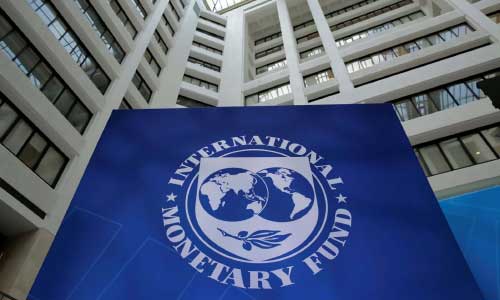KABUL - The International Monetary Fund (IMF) in a report has assessed Afghanistan’s economic index and has described poverty and unemployment among major challenges for Afghans.
The country report titled “Islamic Republic of Afghanistan: Request for a 42-Month Arrangement Under the Extended Credit Facility” has assessed Afghanistan’s overall economic landscape in the next four years and the impacts driving from the war, politics and COVID-19.
According to the report, armed conflicts and fragility have hindered Afghanistan’s development. Growth has been weak, unemployment high, and Afghanistan remains dependent on aid, which finances its large underlying fiscal and current account deficits, the report says.
The report has predicted that Afghanistan’s economic growth rate will still undergo a -5 percent until the end of the current year and the country’s export volume will also decrease by 35 percent.
The report states that the COVID-19 pandemic in Afghanistan has also left significant impacts on the nation’s economic development and livelihoods.
“The COVID-19 pandemic has inflicted heavy damage to the economy and livelihoods. The pandemic and containment measures led to a collapse in economic activity in the first half of the year. With the easing of containment restrictions since late May, activity is regaining its footing. Assuming the infections don’t intensify, the output is expected to contract by 5 percent this year, down from 3.9 percent growth in 2019,” the report said.
The report said that Inflation spiked in April due to border closures and panic buying but has moderated since as resumed trade and a new harvest boosted foodstuff supply.
“The fiscal deficit has sharply widened, to 1.6 percent of 2020 GDP in January–June, reflecting revenue shortfalls due to the pandemic and increased expenditure to mitigate its impact. Risks to the outlook stem from a deeper and more prolonged impact of the pandemic, the uncertain security conditions, and potential shortfalls in donor grants,” the IMF report said.
This comes as Afghanistan prepares for the Geneva Conference.
The IMF in its report has said that international aid to Afghanistan must continue.
According to the World Bank (WB), the poverty rate has likely increased to 61–72 percent, and the crisis exposed long-standing weaknesses in the health system, largely due to inadequate and ineffective spending and limited capacity.
“Our country comes in the category of under develop nations. COVID-19 pandemic will not have any major impacts on impoverished countries. I think the -5 economic growth rate is only a prediction. Such a prediction can be made by the World Bank and other institutions too,” said Hasibullah Muwahid, an economic expert.
“We should be authentic while prioritizing our needs. We need financial assistance in the short term, mid term and long period,” said Darya Khan Bahir, an economist.
Commenting on the report, Shamroz Khan Masjidi, spokesman for the Ministry of Finance, said: “The money that we receive from the IMF is aimed at improving Afghanistan’s economic stability and alleviating poverty and unemployment, fighting the impacts of COVID-19 and some other commitments that we are already working on their details together with this institution.” (TOLO NEWS)
Home » Afghanistan » IMF: Poverty, Unemployment Still a Challenge for Afghans
IMF: Poverty, Unemployment Still a Challenge for Afghans

